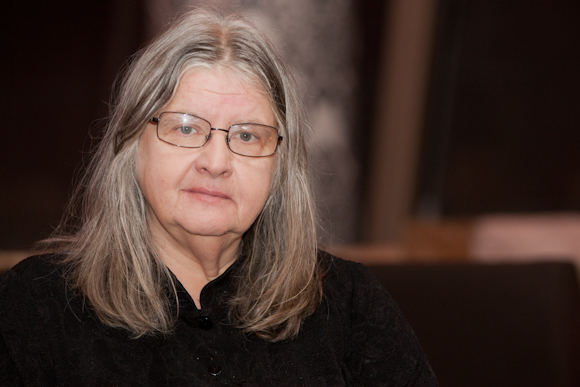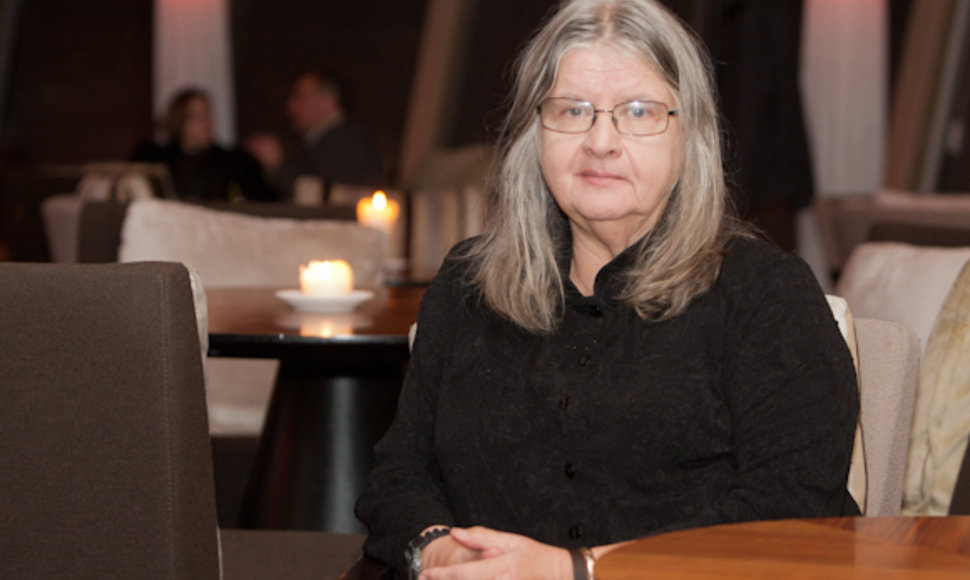- Your fifth trip to Lithuania was complicated – you were supposed to come to Vilnius Book Fair, but you didn't show up.
- Yes, unfortunately the President of Indonesia was supposed to appear at the première of “Born To Be Wild,” a film about efforts to save orangutans and elephants, but he changed the time and my entire schedule collapsed.
- How did the première go?
- Oh, he liked it a lot. He admitted that the film touched his heart. It's indeed a great film and I regret that it cannot be shown in Lithuania – there are no IMAX cinemas here. I do hope that the film will reach Lithuania in DVD.
- Organizers of your visit revealed that you came from sunny Indonesia without wearing a coat. How did you react to the snow here?
I love the snow and it's not cold at all here. Before, all my trips to Lithuania took place in spring and I was always met with strong gusts of frosty wind.
- I love the snow and it's not cold at all here. Before, all my trips to Lithuania took place in spring and I was always met with strong gusts of frosty wind, but not now. So it was ok.
- It is your fifth time in Lithuania. Do you feel more at home here?
- I always feel at home in Lithuania. I understand Lithuanian, even though speaking is more difficult. But I can find my way around perfectly well in Lithuania.
- You came here to present your book “Reflections of Eden: My Years with the Orangutans of Borneo” that you wrote in English seventeen years ago. Is it strange to talk about something you experienced so long ago?
- No, because everything in it is still relevant. Survival of orangutans is still in danger.
- Do you have any regrets about what you wrote in the book?
- Not at all, because I was very cautious while writing the book and I thought everything through very carefully. I wrote it when Indonesia was still ruled by a dictator. The book was translated into Indonesian (unfortunately, the publishing house went bankrupt before the book could come out), but the translator was not told to change anything – this was what the publishers feared most.
At the time, I was going through a very difficult period, I was fighting against illegal forest cutters. When I left to lecture in America, I consulted experienced employees at the embassy, asking how I should describe all this. They gave me valuable advice: “Do not talk about today, but instead show everything from a global view – narrate in the style of historic books.” So I wrote the book reflecting not on the present but on the future. Perhaps that's way the book hasn't lost its relevance.
- Are you planning to write another one?
- Yes, I'm starting to think of it.
- How has the orangutan situation changed since you wrote the book?
- When I was writing the book, the greatest threat to orangutans' survival was illegal cutting of forests and poachers. That's almost gone today. But now, the greatest enemy of orangutans are palm oil plantations. Forest cutting was illegal, poachers were criminals, whereas palm oil industry is perfectly legal. Fighting something that is not illegal and has great power – we're talking about billions of dollars in profits – is very difficult. We're now seeking to make palm oil companies contribute to saving orangutans – it's one of the possible solutions to the problem.
- You've been fighting under strenuous conditions for so long. Where do you get the strength?
- I don't know, perhaps from my parents (smiles).
- The world knows what you have and still do for orangutans. But what do you get from it?
people are weak in spirit, they don't know how to be alone, they make families, come together into groups, societies, communities, but their strength is in this weakness.
- They taught me patience. Orangutans don't do anything hastily. Perhaps it mirrors my own character. I think that modern men can learn from orangutans to be calm, because nowadays everyone is rushing somewhere, keeps talking, doesn't know how to be silent, how to reflect. I love that orangutans are not impulsive – they contemplate everything thoroughly.
Orangutans are used to being alone, they don't feel lonely, yet this is their weakness, they cannot organize themselves and resist. Meanwhile, people are weak in spirit, they don't know how to be alone, they make families, come together into groups, societies, communities, but their strength is in this weakness.
- In the book, you talk about the first orangutans you came across and raised, you call them your kids – how has this relation changed over the 40 years of your work?
- Those who used to be my kids have grown up, the eldest might be 47 already – she is pregnant now. We currently have 335 orangutan cubs so I cannot have the same personal relationship with them. Everyone has a name, I can remember most of them, but I cannot have all 335 sleep in my bed.
When they turn 10 or 11, we let them free. Grownup orangutans have no interest in social relations, especially with humans. You can only observe, much as you might admire and respect them. It's a one-way relationship. Their friendship is unlike human friendship. Most that they can give when they're friends with you is to let you stay close. That's their gift.
- Do you let at least a few of your favourite baby orangutans in your bed?
- No. My husband won't hear of it. Besides, I'm gone for long periods of time so I cannot let them get attached.
- What is your perfect day in Borneo?
If I could choose, I'd live in the forest, but I'm not that privileged as I have to earn money, raise awareness, give lectures.
- The best day is when I can go for a walk in the forest and look for orangutans, find one and follow it, observe. Even though it's physically straining in old age, especially when orangutans head for the marshes. But being with them in the forest and seeing them do what they do – it's wonderful.
- You spend half of your year in Indonesia and the remaining half teaching in mostly American universities. How do you manage to switch from wilderness to civilization?
- The biggest contrast is between the forest and the city – both in Indonesia and the US or Canada. If I could choose, I'd live in the forest, but I'm not that privileged as I have to earn money, raise awareness, give lectures.
- In the book, in addition to orangutans, you talk about very personal experiences (about how your husband left you for a nanny, etc.). How did you have courage to do it?
- I wrote what I felt. While writing the book, I was forced to reflect everything, I got to understand some of the things in my life better. In order to explain them to the reader, I first had to explain them to myself. It turned into a personal therapy.
- Do your children press you to come back to civilization and live closer to them?
- Even though they're adults now and have families of their own, they still ask me to come back. I miss them. Every time I'm in the US, I stay with them in a family house in LA. But my middle son Fred helps me – he is in Indonesia right now.
- So you do get your family's assistance in your mission?
- Oh yes, I couldn't have done all this without my family's support. My parents took care of my youngest kids when they went to school in LA. I wouldn't have been able to stay on the island with orangutans otherwise.
- Is your husband jealous of orangutans getting all your attention?
- He sometimes complains – but he's more unhappy about my long absences.
- What do you miss most from the civilized world while you're in the forest?
- Books. I greatly miss reading. Each time I return to the island, I carry a suitcase-full of books. I also miss intellectual work, yet I couldn't imagine my life without orangutans.
- Orangutans are your...
- ...destiny. In my teens, I saw an orangutan looking at me from a photo and I felt deep connection. I'm very happy that I have the chance to get to know, to observe, and live with them.
I'm glad their lifespan is much longer than that of dogs – they live up to 70 years. Therefore I don't lose my friends and I feel blessed.
 |
| Juliaus Kalinsko/„15 minučių“ nuotr./Birutė Galdikas |













